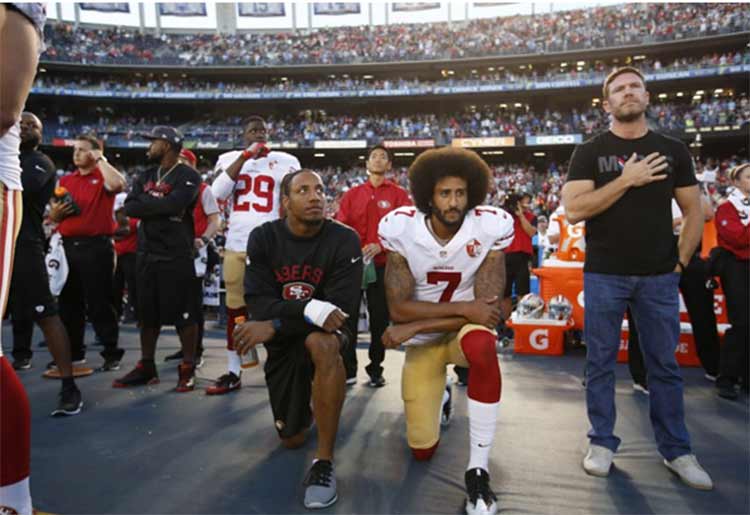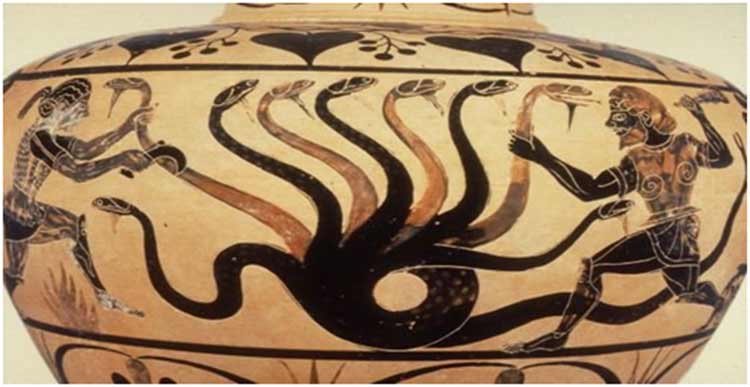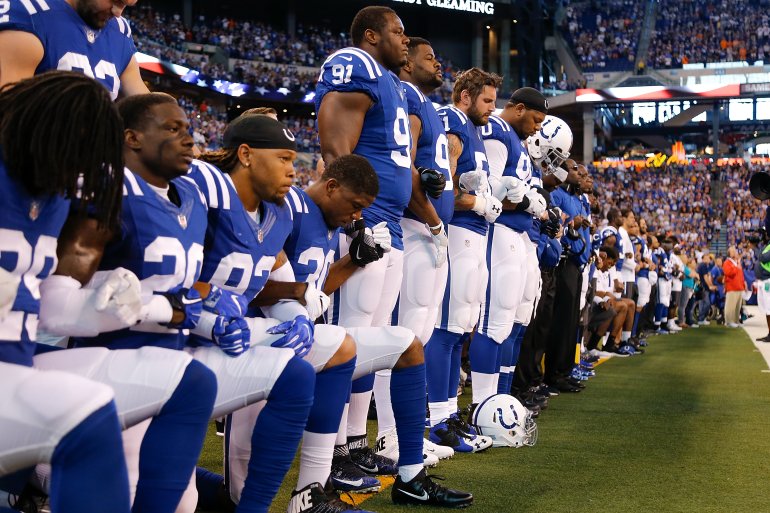
Free-agent quarterback Colin Kaepernick is filing a collusion grievance against National Football League (NFL) owners, according to a document obtained by ABC News.
The filing, which demands an arbitration hearing on the matter, says the NFL and its owners “have colluded to deprive Mr. Kaepernick of employment rights in retaliation for Mr. Kaepernick’s leadership and advocacy for equality and social justice and his bringing awareness to particular institutions still undermining racial equality in the United States.”
Kaepernick drew national attention last season when he knelt during the national anthem before games to protest social injustice, and in particular the large number of police killings of African-Americans. His protest quickly spread, as many other players throughout the league engaged in similar symbolic protests during the anthem. College and high school players also joined in these anthem protests.
The gifted athlete became the target of presidential invective last month, when President Trump told a campaign rally in Alabama that he wanted NFL owners to fire any “son of a bitch” who knelt or otherwise protested during the playing of the national anthem. Several owners have taken up Trump’s call, with Dallas Cowboys owner Jerry Jones threatening to bench any player who follow’s Kaepernick’s example.
Kaepernick began his career with the San Francisco 49ers in 2011, and in his six seasons with the 49ers he led them to one Super Bowl appearance and to within one game of another. Last season, when he began his protests, he served as a backup while recovering from shoulder surgery. He regained his starting position by game six, and was the starting quarterback for all but one of the season’s remaining 10 games and finished with a 90.7 quarterback rating—higher than some of the league’s leading quarterbacks such as Eli Manning, Phillip Rivers and Joe Flacco, among others.
After last season, in part because of San Francisco’s poor record and chaotic coaching changes—four different coaches in four seasons—Kaepernick opted out of his contract, thereby making himself a free agent available to be signed by any team for this season.
During the ten months of his free agency, no team has offered Kaepernick a contract. The league’s owners have continued to assert that the refusal of any team to offer him a contract stemmed from his poor on-the-field performance and had nothing to do with his protests against police violence.
This claim, however, has been repeatedly belied by coaches and players throughout the league. In June, Seattle Seahawks’ coach Pete Carroll said, “Colin’s been a fantastic football player and he’s going to continue to be … He’s a starter in this league. And we have a starter. But he’s a starter in this league, and I can’t imagine that someone won’t give him a chance to play.”
Before the season began, Philadelphia Eagles safety Malcolm Jenkins expressed the feelings of many players when he said to the Daily News, “I would love to see him push back, because I do think he’s been blackballed, and there’s plenty of quotes from owners or whoever saying they’re afraid of the backlash they would get.”
Many other players, including such prominent stars as Richard Sherman, Doug Baldwin, Derrick Carr, and Aaron Rodgers have made similar statements, making it clear that the failure of any team to sign Kaepernick is unrelated to his football abilities.
The filing of the collusion claim comes at the end of the sixth week of the season. During this period, several of the league’s starters have been replaced by backups because of poor performance, while others have had to be replaced because of injuries, yet Kaepernick still has received no offers.
He has chosen to file his complaint outside of the National Football League Players Association (NFLPA), and has retained criminal defense attorney Mark Geragos who has represented a number of high-profile celebrities.
The NFL has very clear and strict rules outlawing teams from colluding against players. Article 17 of the Collective Bargaining Agreement (CBA) prohibits teams from working together against players and states any victims of collusion are entitled to economic damages (likely the average salary quarterbacks were getting from teams this offseason), as well as additional compensation equal to double whatever those lost wages come to.
Collusion does not require all 32 teams working together, but evidence must establish that at least two individuals colluded against a player to validate a claim. In the 1980s, free-agent baseball players proved Major League Baseball owners were conspiring against them to keep salaries down. An arbitrator awarded the players $280 million in damages.
Kaepernick’s collusion claim comes as Green Bay’s all-pro quarterback Aaron Rodgers sustained a broken collarbone during Sunday’s game, likely ending his season. In August, Rodgers told ESPN Magazine, “I think he (Kaepernick) should be on a team right now. I think because of his protests, he’s not.”
Originally published in WSWS.org













































